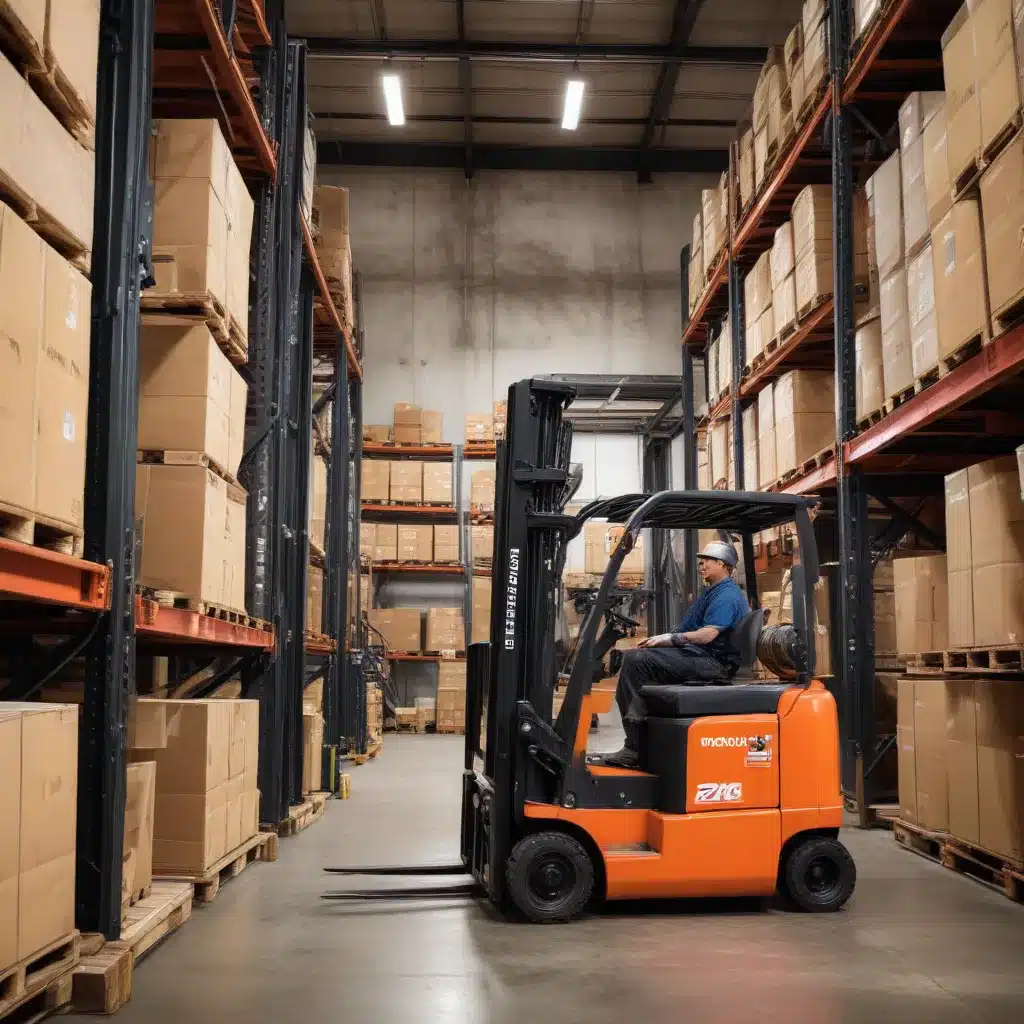
Mastering Forklift Operations through Collective Expertise
As a seasoned industry expert in forklifts, warehousing, and logistics, I’ve witnessed firsthand the power of collaborative problem-solving among forklift operators. In an environment where efficiency, safety, and adaptability are paramount, the ability to work together as a cohesive team can make all the difference.
In this comprehensive guide, we’ll explore the art of collaborative problem-solving, delving into practical strategies, real-world examples, and the tangible benefits that can be achieved when forklift operators leverage their collective expertise.
Embracing a Collaborative Mindset
Successful forklift operations require more than just individual skill and knowledge; they demand a collaborative mindset that fosters open communication, shared responsibility, and a commitment to continuous improvement. By cultivating this mindset, forklift operators can tap into the diverse experiences and perspectives of their team, unlocking innovative solutions to complex challenges.
One shining example of this collaborative approach can be found in the Henkel Consumer Brands facility, where forklift operators work together to enhance overall efficiency, problem-solving, and creativity within the workplace. By fostering a dynamic work environment and emphasizing teamwork, the facility has been able to optimize its material handling processes and minimize interruptions to production.
Identifying and Addressing Common Challenges
Forklift operations often face a myriad of challenges, from navigating tight spaces and managing inventory to ensuring safety protocols are strictly followed. By adopting a collaborative problem-solving approach, forklift operators can collectively identify these challenges and develop tailored solutions.
For instance, the Acquisition Academy highlights the importance of effective team-based problem-solving in the context of acquisition management. The insights gleaned from this resource can be readily applied to the forklift industry, where operators must frequently collaborate to address logistical obstacles and optimize material flow.
One common challenge that forklift operators often face is maintaining efficient forklift maintenance and servicing schedules. By pooling their knowledge and experiences, team members can identify patterns, troubleshoot issues, and develop comprehensive preventative maintenance plans that minimize downtime and maximize productivity.
Leveraging Diverse Perspectives
Forklift operations involve a diverse range of tasks, from loading and unloading to navigating narrow aisles and maneuvering heavy loads. Each operator brings a unique set of skills, experiences, and problem-solving approaches to the table, and by harnessing this diversity, teams can unlock innovative solutions.
As highlighted in the Quora response, the collaborative process allows team members to “bring different perspectives and ideas to the table,” ultimately leading to a more comprehensive and effective solution. In the forklift industry, this collaborative approach can be particularly valuable when addressing complex challenges, such as optimizing warehouse layout or developing customized forklift attachments to handle unique cargo.
By encouraging open dialogue, active listening, and the respectful exchange of ideas, forklift operators can tap into the collective wisdom of their team, fostering an environment where innovative solutions can thrive.
Cultivating a Culture of Continuous Improvement
Effective collaborative problem-solving is not a one-time event; it’s a continuous process of learning, adapting, and evolving. Forklift operators who embrace this mindset are better equipped to navigate the ever-changing landscape of the industry, staying ahead of emerging trends and addressing new challenges as they arise.
The Cascade Training blog highlights the importance of ongoing training and skill development in the forklift industry, emphasizing the need for operators to continuously refine their abilities and stay up-to-date with industry best practices. By incorporating this approach into their collaborative problem-solving efforts, forklift teams can drive continuous improvements, enhancing safety, efficiency, and overall business performance.
Practical Strategies for Collaborative Problem-Solving
Now that we’ve explored the foundational principles of collaborative problem-solving, let’s dive into some practical strategies that forklift operators can implement to enhance their team-based solutions:
-
Regular Team Meetings: Establish a routine for team meetings, where forklift operators can come together to discuss challenges, share insights, and brainstorm solutions. These sessions should be structured to encourage open dialogue, active listening, and the respectful exchange of ideas.
-
Cross-Training and Knowledge Sharing: Implement cross-training programs that enable forklift operators to learn from one another, expanding their skill sets and broadening their understanding of the overall operation. This not only fosters a deeper sense of teamwork but also ensures that the collective expertise of the group is readily accessible.
-
Continuous Feedback and Improvement: Encourage a culture of continuous feedback, where forklift operators are empowered to share their observations, suggestions, and concerns. By actively listening to these inputs and incorporating them into ongoing improvement efforts, the team can maintain a sharp focus on enhancing safety, efficiency, and overall performance.
-
Technology-Enabled Collaboration: Leverage technology solutions, such as forklift fleet management software or cloud-based communication platforms, to facilitate seamless collaboration among team members. These tools can help streamline information sharing, facilitate real-time problem-solving, and enable data-driven decision-making.
-
Interdepartmental Collaboration: Extend the collaborative mindset beyond the forklift operator team, engaging with other departments, such as warehouse management, logistics, and maintenance. By fostering cross-functional collaboration, forklift operators can gain valuable insights, identify interdependent challenges, and develop holistic solutions that benefit the entire organization.
Conclusion: Embracing the Power of Teamwork
In the dynamic world of forklift operations, collaborative problem-solving is not just a nice-to-have; it’s a strategic imperative. By cultivating a collaborative mindset, tapping into diverse perspectives, and continuously improving their skills and processes, forklift operators can unlock unprecedented levels of efficiency, safety, and innovation.
As you embark on your forklift operations journey, remember the power of teamwork and the transformative impact it can have on your business. Embrace the collaborative spirit, leverage the collective expertise of your team, and witness the remarkable results that can be achieved when forklift operators work together towards a common goal.
For more insights and resources on forklift reviews, safety guidelines, maintenance, and industry trends, be sure to visit ForkliftReviews.com.

